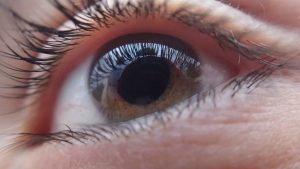
Diabetic Retinal Evaluation
Diabetic retinopathy occurs when the blood vessels in the back of the eye, change. Sometimes these vessels weaken and leak fluid or cause abnormal vessels to grow on the surface of the retina, which may hemorrhage. It is the leading cause of blindness in the 20-64 year age group, and is one of the most frequent causes of retinal blindness in the world. About 25% of diabetics have some form of diabetic retinopathy, and 5% have severe disease.
What can be done to prevent diabetic eye problems?
You can reduce your risk of these eye problems by improving your blood sugar control. People with type 2 diabetes usually have signs of eye problems when diabetes is first diagnosed. Maintaining a healthy weight with a low calorie diet and regular exercise along with control of blood sugar, blood pressure, and blood cholesterol has an important role in slowing the progression of retinopathy and other eye problems.
If you have diabetes, regular visits to Casa Grande Eye Care for checkups are important to avoid problems and vision loss.
Macular Degeneration Evaluation
Macular degeneration is the leading cause of severe vision loss in people over age 60. This occurs when the macula, very central part of the retina, deteriorates. The retina is located in the back of the eye and is responsible for receiving the light rays as they enter the eye. The disease is also known as Age-Related Macular Degeneration (AMD), because it usually develops as a person ages. Although macular degeneration does not result in total blindness, it can be a source of profound visual disability.
How is it diagnosed?
Age-related macular degeneration or AMD can be detected in a routine eye exam. Early detection of age-related macular degeneration is very important because there are treatments that can stop, delay or reduce the severity of the disease. In its early stages, macular degeneration may not have symptoms and may be unrecognized until it progresses or affects both eyes. The first sign of macular degeneration is usually a dim, blurry spot in the middle of your vision. This spot may get bigger or darker over time.
What are the symptoms?
Symptoms of macular degeneration may include:
• Dark, blurry areas in the center of vision
• Diminished or changed color perception
• Straight lines appear wavy
There are two main types of age-related macular degeneration:
Dry form. The “dry” form of macular degeneration is characterized by the presence of yellow deposits, called drusen, in the macula. A few small drusen may not cause changes in vision; however, as they grow in size and increase in number, they may lead to a dimming or distortion of vision that people find most noticeable when they read. In more advanced stages of dry macular degeneration, there is also a thinning of the light-sensitive layer of cells in the macula leading to atrophy, or tissue death. In the atrophic form of dry macular degeneration, patients may have blind spots in the center of their vision. In the advanced stages, patients may lose most of their central vision.
Wet form. The “wet” form of macular degeneration is characterized by the growth of abnormal blood vessels underneath the macula. These blood vessels leak blood and fluid into the retina, causing distortion of vision that makes straight lines look wavy, as well as blind spots and loss of central vision. These abnormal blood vessels eventually scar, leading to permanent loss of central vision.
Who is at risk?
Macular degeneration may rarely be hereditary, meaning it can be passed on from parents to children. If someone in your family has or had the condition you may be at higher risk for developing macular degeneration. Talk to your eye doctor about your individual risk. Smoking, high blood pressure, high cholesterol, obesity, and being Caucasian are also risk factors for macular degeneration.
What can be done to treat it?
It is very important for people with macular degeneration to monitor their eyesight very carefully and to return to see the doctor as directed. Along with regular follow-up, your doctor may suggest you begin to improve your diet by adding lots of green, leafy vegetables and perhaps introducing vitamins and supplements that are especially formulated for patients with AMD.
If you or a loved one suffer from Macular Degeneration and would like more information on the diagnosis or treatment for this eye condition please call us at (520) 836-9606.